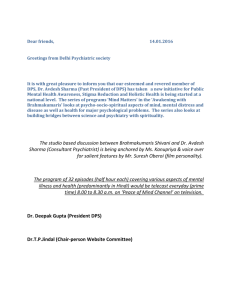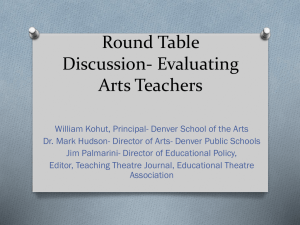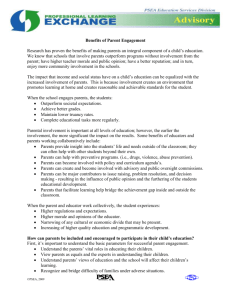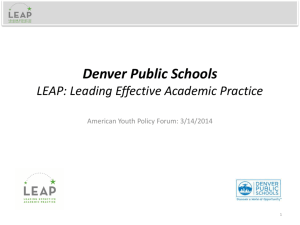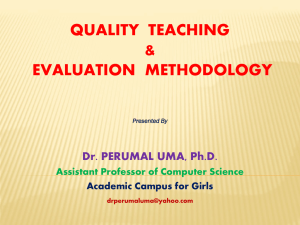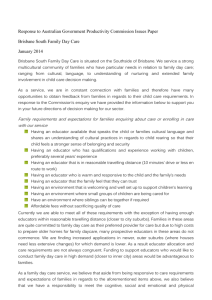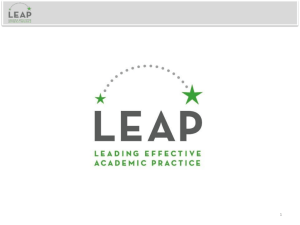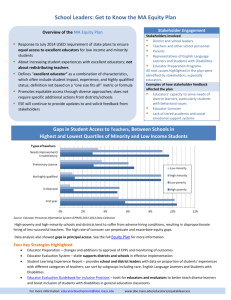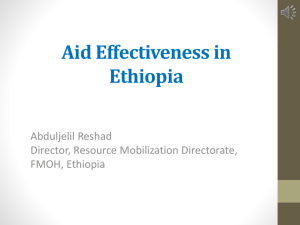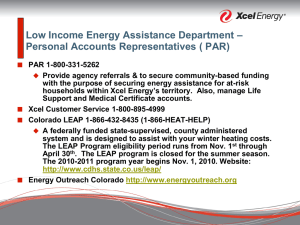DPS Stakeholder Engagement Toolkit
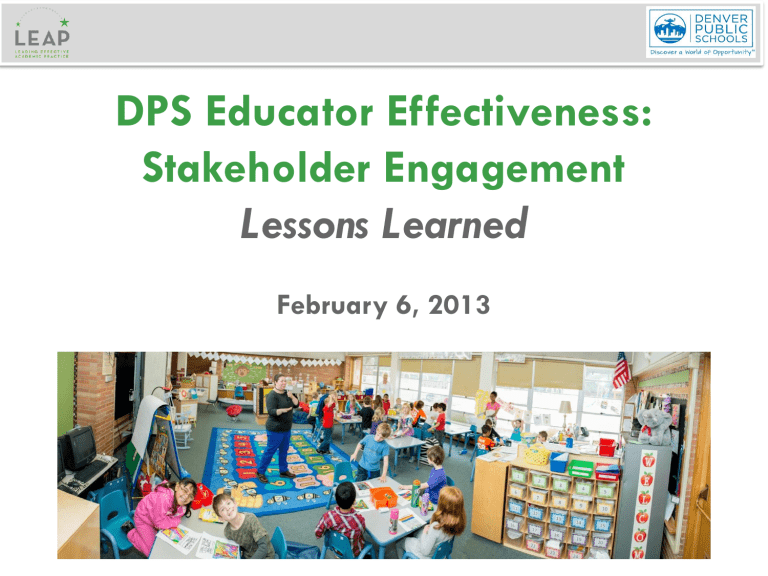
DPS Educator Effectiveness:
Stakeholder Engagement
Lessons Learned
February 6, 2013
Objectives
1. Understand the importance of a stakeholder engagement strategy surrounding educator effectiveness work.
2. Identify opportunities to engage stakeholders in the coming year.
3. Leave with tools and resources to help you develop an engagement plan for the coming year.
Agenda
Overview of LEAP/
Stakeholder Engagement
Lessons Learned
Activity
Q&A
Our Vision: Every Child Succeeds
4
DPS Priorities
Help our
Educators Grow
Shift our
Teaching
Practices with
Students
Improve the
Outcomes of
Linguistically
Diverse Students
Differentiate
Support to
Schools
We will use frameworks, coaching, feedback and professional development to support educator growth.
We will implement new standards using rigorous and culturally relevant curriculum, instruction and assessments.
We will strengthen our systems and practices for ELLs and other diverse learners.
We will provide equitable and differentiated supports and interventions by sharing best practices, piloting new ways to improve.
5
Design, feedback, pilot, adjust
2010 – 2014
Leverage Teacher Leaders Engage Parents
Partner with DCTA
Superintendent Parent Forum
5 times since May 2010
Engage educators
Focus on professional growth Solicit feedback 6
The LEAP System
DPS Framework for Effective Teaching
Peer Observations &
Feedback
School Leader
Observations & Feedback
State Measures
Student Learning
Objectives*
School Measures
Professionalism Ratings &
Feedback
Student Perception
Survey Data
Professional Learning Professional Growth Plans
* Piloting in 2013-14; plan to launch district-wide 2014-15
Mid-Year & End-of-Year
Conversations 7
7
Turn and Talk
What does “stakeholder engagement” mean to you?
Key Learning
Involve the Union
• Design together
• Union seat at the table
• Union outreach support
Engage Educators Early
• Engage them in design/refinement
• Ask for input on implementation
• Think about channels to reach them (focus groups, faculty meetings, etc.)
• Most important: Where do you want their voice, how will you engage them, what will you do with their input?
DPS Framework for Effective Teaching
Professionalism
13
Solicit Feedback
• Avenues to share information, keep the field informed
• Channels through which people can share feedback
• Two-way communication channels (dialogue)
DCTA
Union Liaison/
Outreach
Managers
Design Teams
Newsletters,
Websites
Surveys/
Focus Groups
LEAP Hotline
& Website
Teacher
Leaders
Faculty
Meetings
Focus on Professional Learning
• Start early
• Input from teachers on what they need
• Existing or new resources
Can/Cannot Be Changed
• Responding to feedback
• Communicate clearly with practitioners about what can and cannot be changed, and why
Teacher Leadership
• Owners and advocates of the system
• Deliver training
• Resource for other teachers
• Differentiated roles pilot where teachers are also observers/ evaluators
Instructional Superintendents
• Owners and advocates of the system
• Establishing accountability/ behavior change
• Actively include their teams in trainings
What’s Next
How will you engage stakeholders?
Activity
• Begin planning:
Where do you want teacher and school leader voice to influence how you implement educator effectiveness in your district?
How will you communicate updates, changes, training, etc.?
(in-person, focus groups, email, through leaders, etc.)
How will you use the feedback you receive? (only ask about what can be changed)
What is one action you want to take to engage your stakeholders?
Communication
Engagement Toolkit
Feedback
Planning
Training
